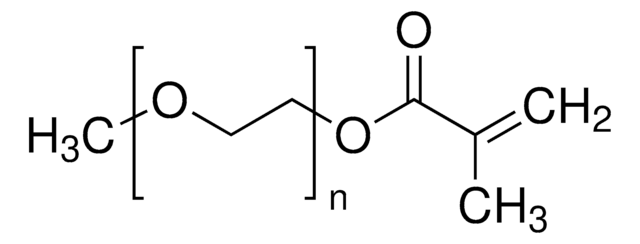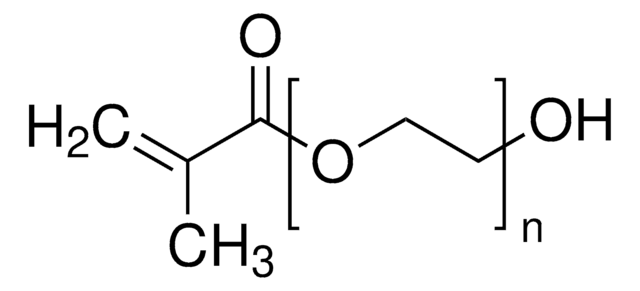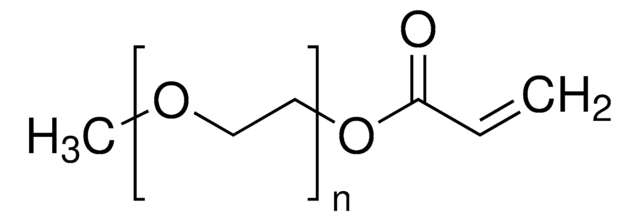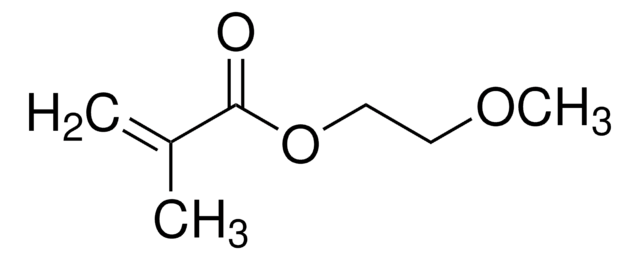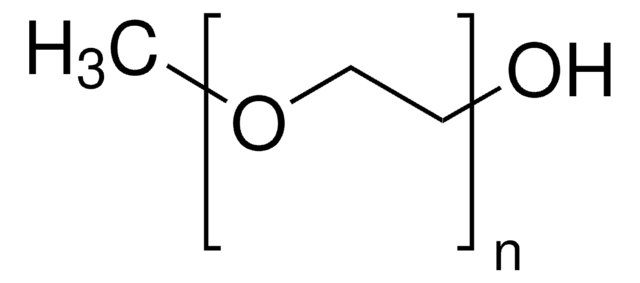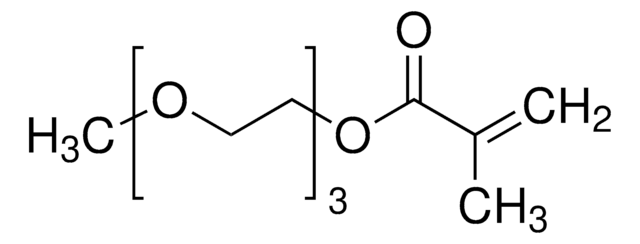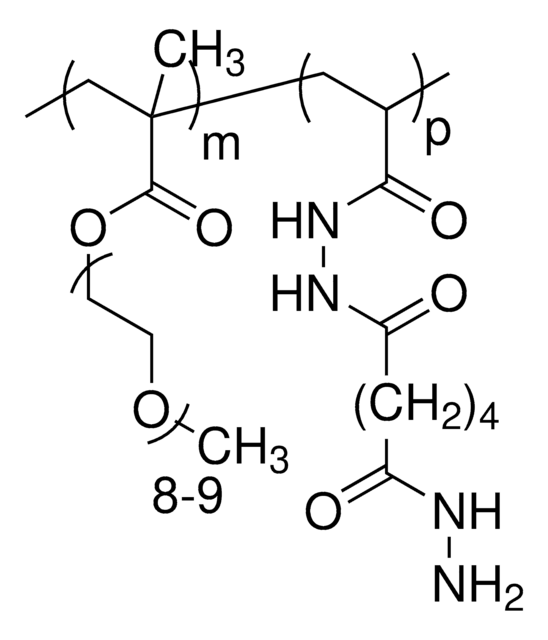730327
Poly(ethylene glycol) methyl ether methacrylate
average Mn 4,000, methacrylate, methoxy, ≤300 ppm MEHQ as inhibitor
Synonym(s):
Polyethylene glycol, Methoxy PEG methacrylate, Methoxy poly(ethylene glycol) monomethacrylate, Poly(ethylene glycol) monomethyl ether monomethacrylate
About This Item
Recommended Products
Product Name
Poly(ethylene glycol) methyl ether methacrylate, average Mn 4,000, contains ≤300 ppm monomethyl ether hydroquinone as inhibitor
form
powder or crystals
mol wt
average Mn 4,000
contains
≤300 ppm monomethyl ether hydroquinone as inhibitor
reaction suitability
reagent type: chemical modification reagent
reaction type: Polymerization Reactions
transition temp
Tm 56-61 °C
density
1.100 g/cm3
Mw/Mn
<1.1
Ω-end
methacrylate
α-end
methoxy
polymer architecture
shape: linear
functionality: monofunctional
storage temp.
−20°C
SMILES string
O(CCOCCOC)CCOCCOC(=O)C(=C)C
InChI key
KRCGBOKYIUDIFY-UHFFFAOYSA-N
Looking for similar products? Visit Product Comparison Guide
Related Categories
Preparation Note
Signal Word
Warning
Hazard Statements
Precautionary Statements
Hazard Classifications
Eye Irrit. 2 - Skin Irrit. 2 - Skin Sens. 1 - STOT SE 3
Target Organs
Respiratory system
Storage Class Code
11 - Combustible Solids
WGK
WGK 1
Flash Point(F)
>230.0 °F - closed cup
Flash Point(C)
> 110 °C - closed cup
Regulatory Listings
Regulatory Listings are mainly provided for chemical products. Only limited information can be provided here for non-chemical products. No entry means none of the components are listed. It is the user’s obligation to ensure the safe and legal use of the product.
JAN Code
730327-1G:
730327-BULK:
730327-VAR:
Choose from one of the most recent versions:
Certificates of Analysis (COA)
Don't see the Right Version?
If you require a particular version, you can look up a specific certificate by the Lot or Batch number.
Already Own This Product?
Find documentation for the products that you have recently purchased in the Document Library.
Customers Also Viewed
Articles
Devising biomaterial scaffolds that are capable of recapitulating critical aspects of the complex extracellular nature of living tissues in a threedimensional (3D) fashion is a challenging requirement in the field of tissue engineering and regenerative medicine.
Our team of scientists has experience in all areas of research including Life Science, Material Science, Chemical Synthesis, Chromatography, Analytical and many others.
Contact Technical Service